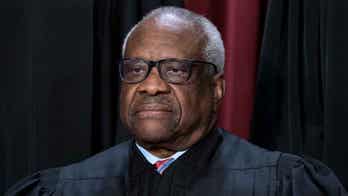Guantanamo Bay, Cuba-- With high-stakes drama unfolding on the campaign trail, and all eyes cast toward who will emerge as the GOP nominee to challenge President Obama for the White House, it's an unfulfilled campaign promise made by then candidate Obama that still resonates with so many -- a pledge to close the Guantanamo Bay detention camps.
When the President signed the executive order to shutter the prisons in January 2009, there were 245 detainees. Today, more than 170 remain. Now the administration is embarking on the prosecution of several cases in the military commissions - a system candidate Obama did not support.
This week former Baltimore teen Majid Khan will be arraigned in a military court in Guantanamo. Khan, the only legal U.S. resident on trial here, is accused of being hand-selected by 9/11 mastermind Khalid Sheikh Mohammed for a second wave of attacks inside the U.S. - including a plot to blow up gas stations.
Khan is also implicated in an assassination plot against former Pakistani President Purvez Musharaff and a car bombing at the Marriott Hotel in Jakarta in 2003.
Some see the administration's change of heart on the proceedings as little more than an effort to create a mirage.
"I don't think they're taking any steps to close the camps whatsoever," said Edward MacMahon, one of the country's leading defense attorneys on national security cases. "What they are eager to do is to cut deals with people that are in the camps in Guantanamo and try to create some appearance that there's some progress down there."
Since the detention camps opened in 2002, some half dozen cases have been prosecuted - four ended in plea agreements with minimal jail time. Khan is also expected to cut a deal.
And now even President Obama's most ardent supporters on the left, including Human Rights Watch, say the administration seems so eager to close the camps and reduce the population - that plea agreements with minimal jail time are a sweetheart deal for both sides.
In an interview with Fox News Andrea Prasow of Human Rights Watch said, "I don't think anyone thinks it's a great idea that we're prosecuting people who have been held for ten years, the evidence gets stale, witnesses are no longer available. So there's strong incentive to move these cases forward, wherever they are."
She further explained, "But it doesn't mean that it's the right outcome. If these people have committed serious crimes, they should get a sentence that's appropriate."
GTMO detainees like Usama bin Laden's personal cook or his driver are spending less time in prison than American citizens prosecuted in federal courts on lesser charges.
One glaring example is Zachary Chesser, a man from Charlottesville, Virginia -- who never fired a shot on the battlefield - is now serving a twenty-five year sentence for making threats against the makers of the cartoon, "South Park" and supporting a Somali terror group.
By contrast, Omar Khadr who killed an American soldier in Afghanistan is nearly half way through his eight year sentence at GTMO, and may be permitted to serve out the rest of his sentence in Canada.
Wednesday will be the first time anyone outside the U.S. military or intelligence community has seen Majid Khan since his capture following the 9/11 attacks and subsequent transfer to the CIA secret prisons.
Fox News Producer Patrick Summers contributed to this report




